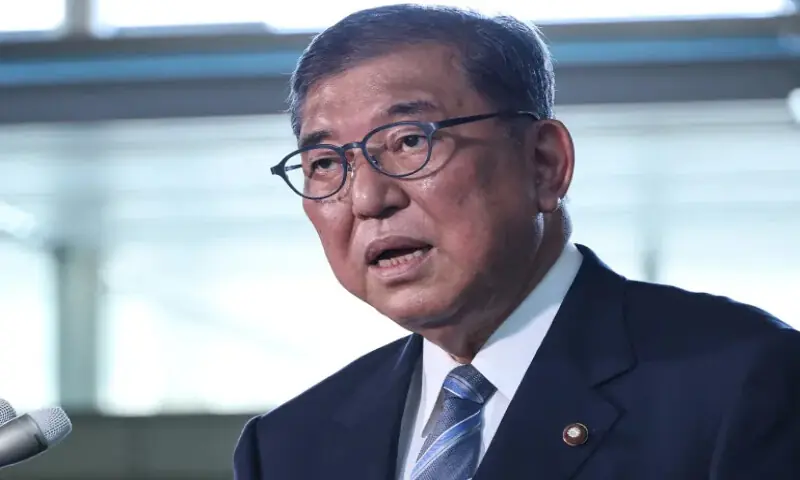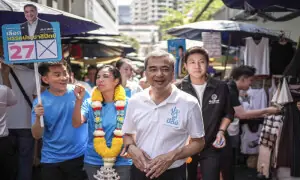Japan Prime Minister Ishiba to resign after election debacle, says NHK
Japanese Prime Minister Shigeru Ishiba resigned on Sunday, ushering in a potentially lengthy period of policy uncertainty at a shaky moment for the world’s fourth-largest economy.
Having just ironed out final details of a trade deal with the United States to lower President Donald Trump’s punishing tariffs, Ishiba, 68, told a press conference he must take responsibility for a series of bruising election losses.
Since coming to power less than a year ago, the unlikely premier has overseen his ruling coalition lose its majorities in elections for both houses of parliament amid voter anger over rising living costs.
He instructed his Liberal Democratic Party - which has ruled Japan for almost all of the post-war period - to hold an emergency leadership race, adding he would continue his duties until his successor was elected.
“With Japan having signed the trade agreement and the president having signed the executive order, we have passed a key hurdle,” Ishiba said, his voice seeming to catch with emotion. “I would like to pass the baton to the next generation.”
Ishiba has faced calls to resign since the latest of those losses in an election for the upper house in July. The LDP had been scheduled to hold a vote on whether to hold an extraordinary leadership election on Monday.
‘NO TIME TO LOSE’
Ishiba, a party outsider who became leader on his fifth attempt last September, wrapped up his brief tenure by completing the trade deal with Japan’s biggest trading partner, pledging $550 billion of investments in return for lower tariffs.
Trump’s tariffs, especially those targeted at Japan’s critical automotive sector, had forced Japan to downgrade its already weak growth outlook for the year.
Ishiba said he hoped his successor could ensure the deal is executed and Japan continues generating wage gains to assuage voter concerns over living costs.
He also expressed concern about the security environment his successor will inherit, pointing to an unprecedented gathering of Chinese, Russian and North Korean leaders in Beijing for a massive military parade last week.
Yoshinobu Tsutsui, chairman of Japan’s biggest business lobby, Keidanren, said there was “no time to lose” with mounting domestic and international challenges.
“We hope the new leader will foster unity within the party, establish stable political conditions, and move swiftly to implement necessary policies,” Tsutsui said.
Some voters too are hoping for a steady hand in uncertain times.
“With all the turmoil around tariffs right now, I hope the next prime minister will be someone who can properly manage the tariff issues and handle diplomacy more effectively,” Maki Utsuno, a 48-year-old chemistry researcher, told Reuters outside a busy train station in downtown Tokyo on Sunday.
For the latest news, follow us on Twitter @Aaj_Urdu. We are also on Facebook, Instagram and YouTube.

























Comments are closed on this story.